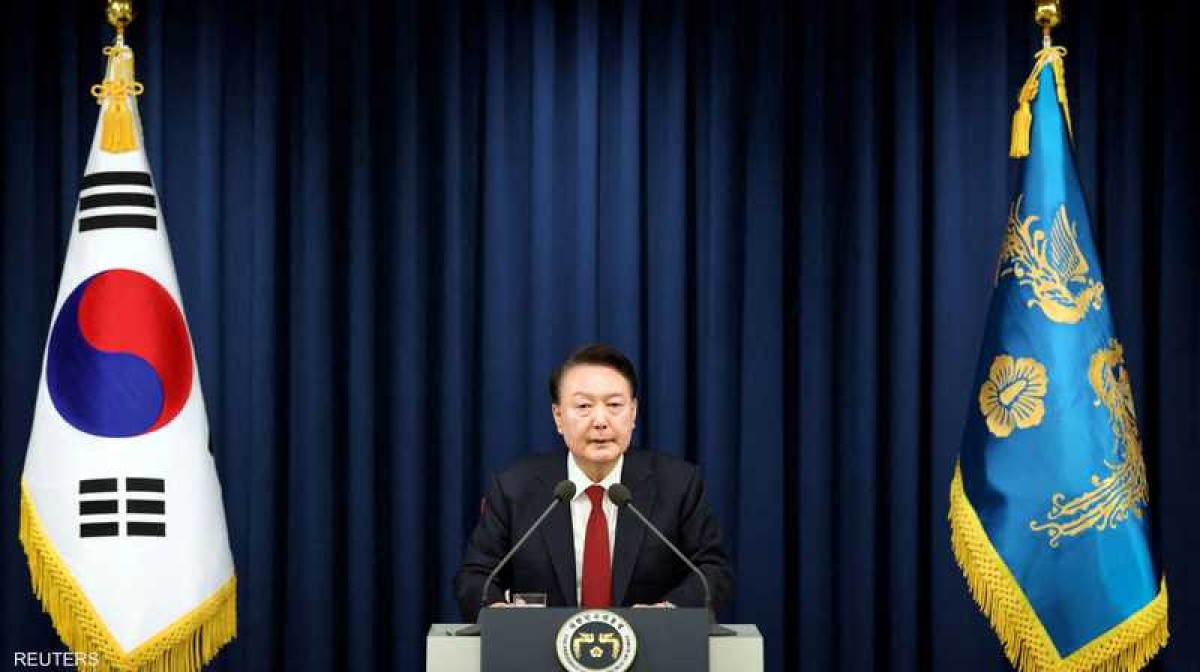The Parliament headquarters in South Korea was closed following the announcement of the imposition of martial law in the country


South Korean President Yoon Suk-yeol announced, on Tuesday, in a surprise television speech broadcast late at night, the imposition of martial law in the country.
The president justified this move by the need to protect South Korea from “communist forces” and confront “anti-state” elements.
Yon pointed to the moves of the opposition Democratic Party, which controls Parliament, to dismiss senior prosecutors and reject the government's budget proposal, considering that these actions threaten the country's stability.
In his speech, Yoon said: “To protect liberal South Korea from the threats posed by communist forces in North Korea and eliminate anti-state elements... I hereby declare a state of emergency and martial law.”
Following this announcement, Defense Minister Kim Jong-hyun ordered an emergency meeting of senior military commanders, calling for heightened vigilance and remaining on high alert.
According to the South Korean news agency Yonhap, security measures around Parliament have been strengthened, hindering the entry of lawmakers into the building.
For his part, the head of the ruling party, Han Dong-hun, described the declaration of martial law as a “mistake,” stressing his determination to prevent it in cooperation with the people.
Other parties also considered this move “unconstitutional and anti-public.”
Economic repercussions
The Korean Finance Minister's spokesman announced that the minister will hold a meeting between senior economic officials at 11:40 p.m. South Korean time
The value of the South Korean won fell sharply against the US dollar, to its lowest levels since October 2022, shortly after martial law was declared.
The US dollar witnessed a 2% rise against the won, by 2:50 GMT.
Shares of Korean companies listed in the United States also fell, as shares of “Coupang” and “Posco Holdings” fell by about 6 percent, while “KT Corp” and “KB Financial” fell by 3 percent and 1 percent, respectively.
p>The South Korean stock market announced that it will operate as usual tomorrow, Wednesday.
Political backgrounds
These developments come in light of escalating political tensions in South Korea.
In April 2024, the opposition Democratic Party won an overwhelming majority in the legislative elections, complicating President Yoon's efforts to pass his policies.
The then president pledged to implement “reforms” to confront the challenges resulting from the opposition’s dominance of Parliament.
In addition, in recent years, the country has witnessed major political scandals. In 2017, the Constitutional Court upheld Parliament's decision to impeach President Park Geun-hye due to her involvement in a corruption scandal, which led to widespread protests and demands for reform.
According to the South Korean Constitution, the President has the right to declare martial law, but must notify the National Assembly without delay, and if the Assembly requests the lifting of martial law with the approval of a majority of its members, the President must comply.
These events also come in a tense regional context, as North Korea classified its southern neighbor as a hostile country in January 2024, which increased tensions on the Korean Peninsula.
President Yoon responded by criticizing the move, vowing a strong response to any provocations from Pyongyang.
It is noteworthy that President Yeon Suk-yul, who took office in May 2022, called in his inauguration speech on North Korea to completely denuclearize, in exchange for providing massive economic aid, stressing that Pyongyang’s nuclear arsenal constitutes a threat to global security.